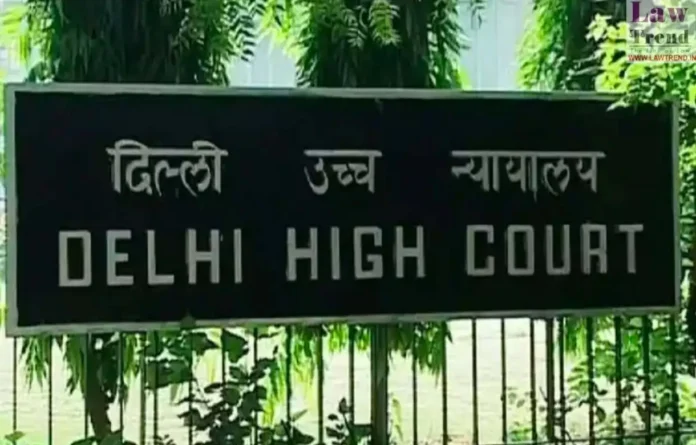The Delhi High Court has ruled that the persons accused in a case must be provided with the grounds for arrest immediately after being apprehended, and should be given adequate time to consult their lawyer before hearings on police/judicial remand.
The single-judge Bench of Justice Anup Jairam Bhambani observed on Tuesday that this would provide a meaningful opportunity to the accused to challenge their police/judicial custody.
The High Court pointed out that Section 50 of the Code of Criminal Procedure (CrPC) called on the police or any other agency making an arrest without a warrant to forthwith communicate the grounds for such arrest.
It explained that the word ‘forthwith’ appearing in Section 50 Cr.P.C. mandated the Arresting Officer to serve upon the arrestee the grounds of arrest simultaneously with the issuance, or as part of the arrest memo.
The single-judge Bench observed that this was the only legal interpretation possible to ensure that the accused were not deprived of their liberty mechanically or needlessly.
Granting sufficient time to the arrestees even after the grounds of arrest have been served on them in writing would enable them to
engage and confer with their legal counsel, as well as bring abundant clarity in the matter, it added.
The High Court passed the order on a petition filed by one Marfing Tamang, challenging a May 2024 trial court order that remanded him to police custody in a rape case.
The petitioner contended that he was the manager of an establishment. He was arrested on charges of sexually abusing and exploiting his victims, as well as benefiting financially from these activities.
On May 18, 2024, a trial court remanded him to police custody for two days. On May 20, 2024, the trial court remanded him to judicial custody for 14 days.
The petitioner challenged these remand orders as well as his arrest before the High Court.
The Counsel appearing for the petitioner argued that his arrest and remand violated various caselaws. The remand order of May 18 incorrectly stated that the petitioner was arrested at 6:30 pm on May 17, 2024. This contradicted the status report filed by the Investigating Officer, which mentioned that the petitioner had arrived at the police station around 11:30 am that day on the instructions of police officials.
The counsel further argued that the remand application failed to specify the exact offences alleged against the petitioner, which was a mandatory requirement under Section 50, CrPC (now replaced by Section 47 of the Bharatiya Nagarik Suraksha Sanhita, 2023).
The Counsel appearing for the State countered that the grounds of arrest were served on the petitioner on May 18 at 4:40 pm. There was no legal obligation for the grounds of arrest to be included in the remand application, he added.
The High Court, after listening to both sides, ruled that the petitioner’s arrest was unlawful due to non-compliance with Section 50 CrPC and Article 22(1) of the Constitution, as he was not immediately informed about the grounds for his arrest.
The High Court further set aside the Magistrate’s order remanding the petitioner to police custody on the grounds that the petitioner was given the grounds of arrest only an hour before the remand hearing.
The single-judge Bench noted that furnishing the grounds of arrest in writing just about an hour before the remand hearing could not possibly be considered an adequate compliance with the requirements of Section 50 CrPC.
Section 50 CrPC mandated that the grounds of arrest must be communicated to an arrestee forthwith, which meant simultaneously and immediately upon the arrest of such person, it noted and ordered the release of the petitioner from custody.


